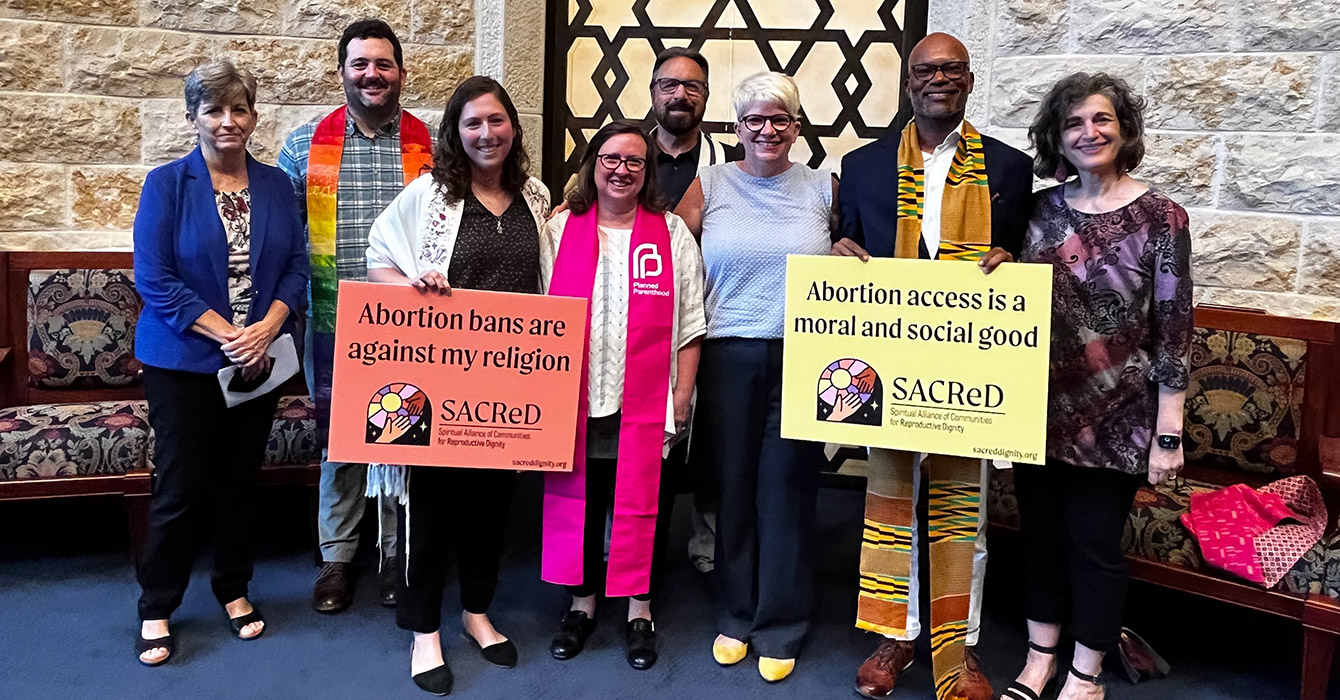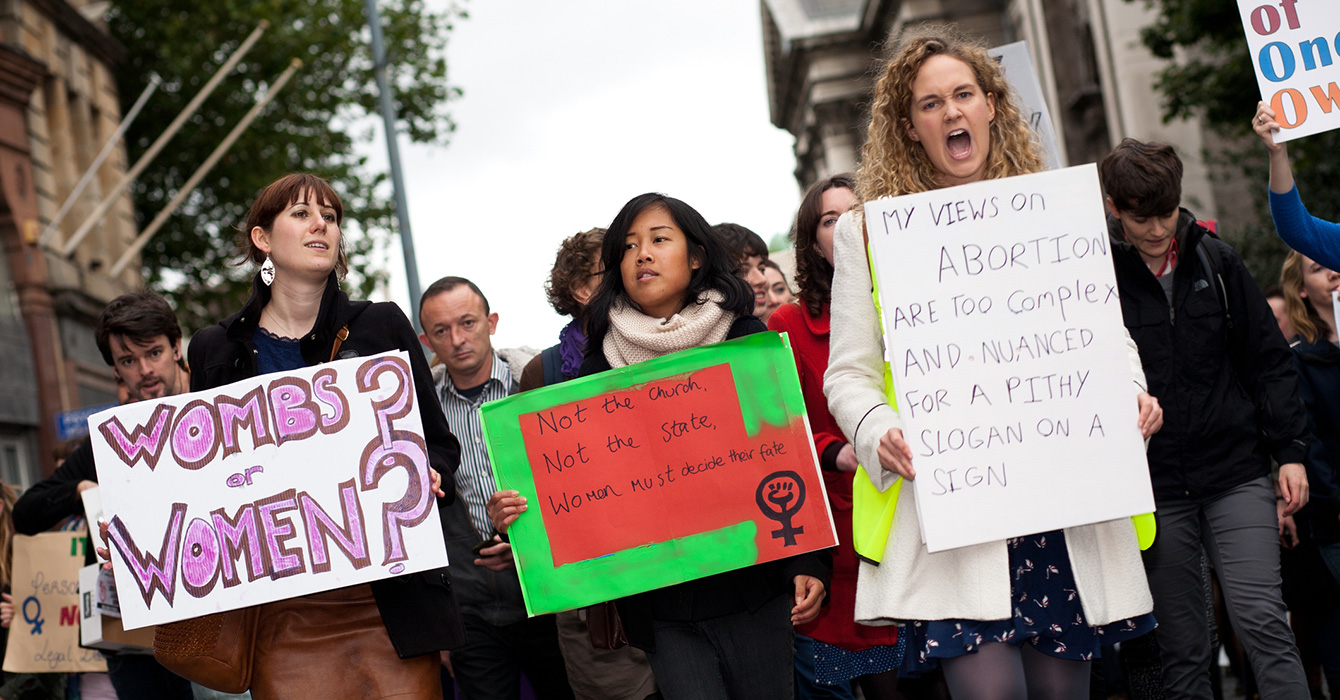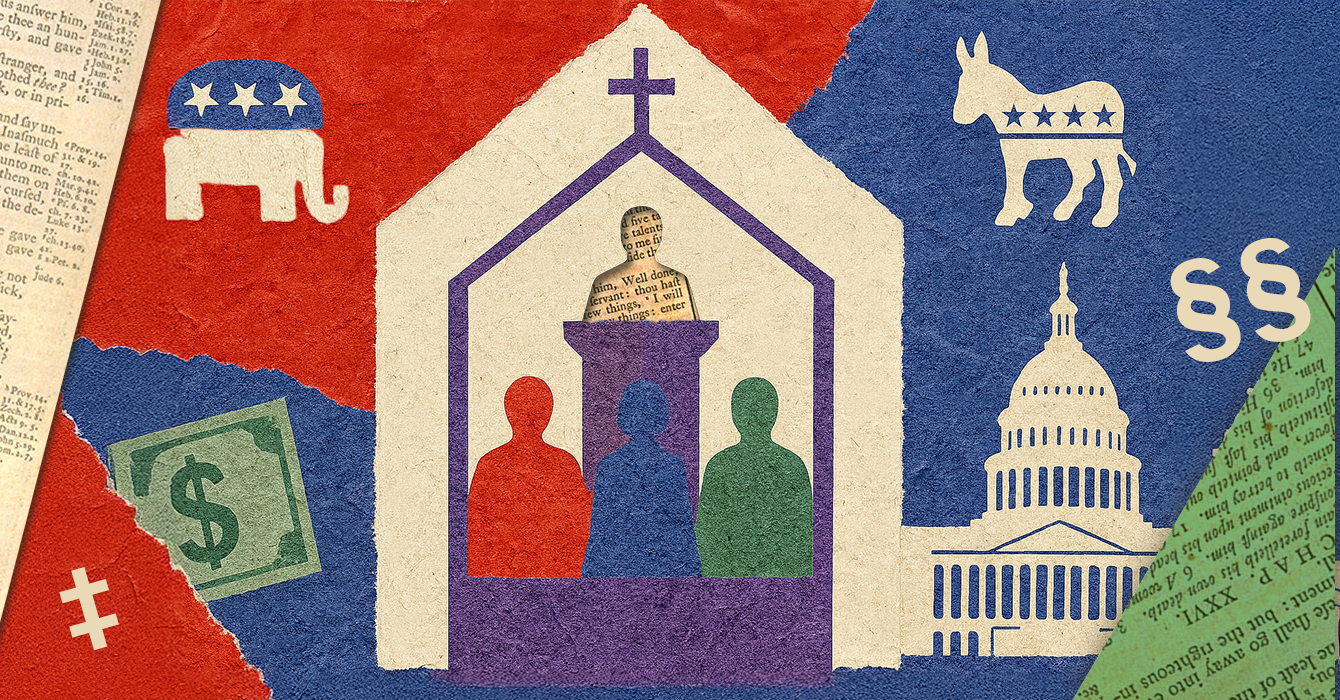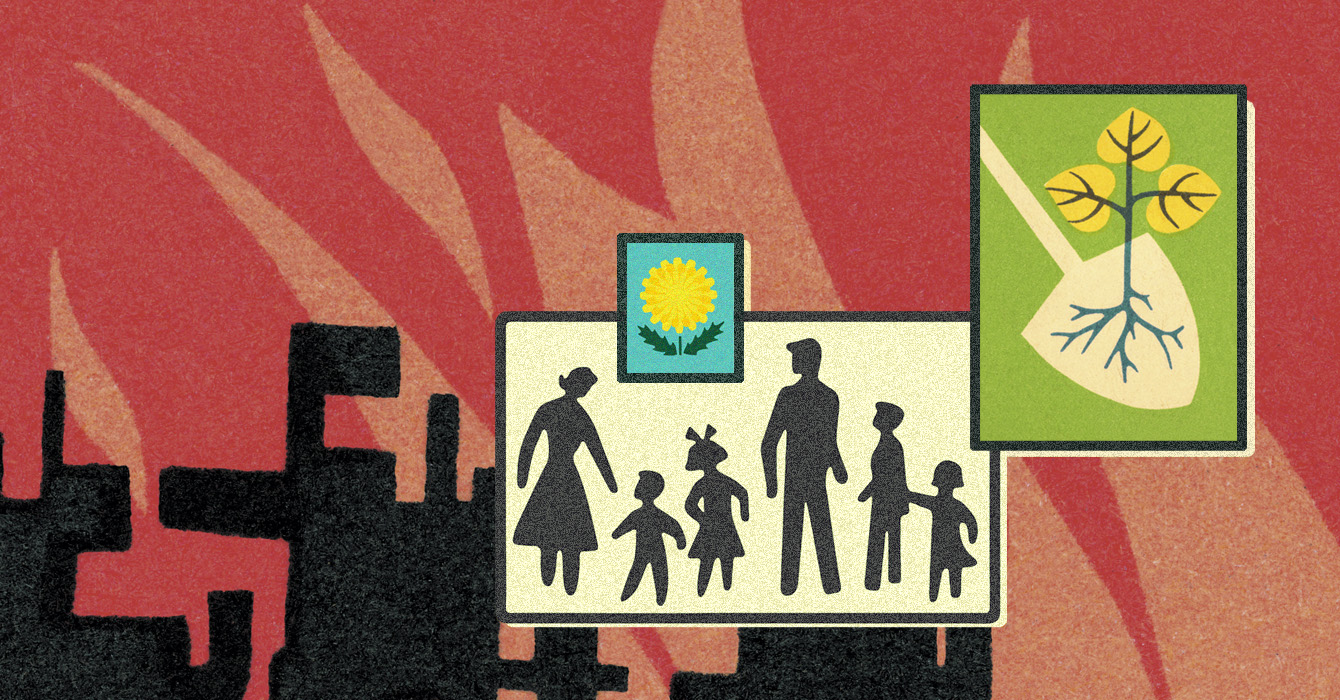Even though I knew it was coming, the announcement of the United States Supreme Court’s Dobbs v. Jackson decision was a punch in the gut. I think many people across the country felt the same way. As we grapple with questions that the ruling raises about contraception, privacy and marriage equality, it is crucial to understand an underlying cultural narrative that led to this moment.
The narrative centers on a widespread belief that Christianity is anti-abortion, a perception amplified by the ubiquity of Christian-sponsored anti-abortion billboards, bumper stickers and picketing at abortion clinics.
This belief has been reinforced by the reluctance of many religious leaders and faith-based social justice organizations who think otherwise to speak up. Abortion is often seen as the third rail — the topic that could get you fired or will drive away Catholics or evangelicals or Republicans (not that all Catholics, evangelicals or Republicans are anti-abortion!). Out of an abundance of caution, some people of faith who support legal access to abortion have chosen silence.
Many mainline denominations have clear public statements supporting abortion access, but these are rarely discussed in local congregations. That silence sits fine with those who find talk about controversial subjects uncomfortable; nobody likes being uncomfortable, especially in church.
Someone should have told that to Jesus.
As we move from the justification frame of abortion to a reproductive justice frame, it is crucial that faith leaders and religious communities step up and recognize that respecting bodily autonomy and moral agency is a fundamental Christian commitment.
Developing a faith-based ethic of reproductive justice begins with recognizing and affirming that the task and responsibility of parenting is a sacred trust. While this sacred-trust vision of parenting is a Christian value, it is not a direct biblical teaching; there is no commandment or noteworthy quote on it attributed to Jesus.
Scripture reflects a different, ancient culture, and its statements on parenting and descriptions of familial relationships speak to and from that world. In the Bible, children are taught to honor their fathers and mothers, and parents are instructed to discipline their children. Yet the idea that relationships between parents and children should be loving, supportive and primary moral obligations, while not in the Bible, is a Christian understanding of parenting.
In the Presbyterian tradition, we understand parenting as a “calling” — what Calvin described as “a particular way of life” that serves as a “sentry post,” complete with duties that must be heeded. Understanding that God calls to us so that we need not “heedlessly wander about throughout life” can help us discern our place in the world and find a sense of purpose in our lives.
Discerning our call — to our vocation, to parenthood or to both — is the responsibility of every Christian. Given the commitment, discipline and resources it takes to parent, we need to make sure that people are ready, willing and able to take up this sacred task.
Christian values support the idea that establishing and maintaining healthy and secure families requires careful, morally rich consideration whether to become a parent or not. Such an approach is reflected in the wisdom my mother shared with me: “You shouldn’t have a baby just because you are pregnant; you should have a baby because you want to be a mother — you want to have a family.”
Use of the Bible in the abortion debate often focuses on quoting individual verses out of context to prove something about the value of prenatal life. But there are no direct teachings about abortion in the Bible. And not all Christians engage with Scripture in this way, nor is it how all think about what shapes and defines Christian values.
Christianity has a long and deep tradition of searching Scripture for principles and standards that help shape the contours of our moral life. Grounded in Christian principles that promote abundant life, seek justice and recognize the human dignity of women, the decision to end a pregnancy can be a morally good decision.
A Christian approach to reproductive justice recognizes that in saying no to a particular pregnancy, women are often saying yes to other visions of wholeness and abundant life — sometimes for existing children, sometimes for families or marriages, sometimes to a vision of a whole and abundant future life for themselves.
In this moment of crisis and despair for hundreds of thousands of women across the country, the voices of faith leaders and faith communities supporting reproductive dignity and reproductive justice have never been more necessary.
In 2013, after Wendy Davis’ heroic filibuster in the Texas Senate managed to forestall draconian legislation threatening to close all but five of the state’s 42 clinics that offered abortion care, a brave group of faith leaders came together to strategize about how to counter the narrative, dominant in their state, that religion and religious leaders opposed abortion.
As they discussed the legislative problems facing them and the challenges of an abortion narrative dominated by a justification frame, they realized that they needed more than a short-term political strategy. They needed long-term social and cultural change.
These clergy reached out to the Texas Freedom Network to develop Reproductive Freedom Congregations, which launched in 2016 seeking to create “a movement to eradicate stigma around reproductive freedom in Texas … one congregation at a time.”
In 2020, leaders from Just Texas partnered with Jewish, Christian, and Unitarian clergy and reproductive justice leaders to build the Spiritual Alliance of Communities for Reproductive Dignity (SACReD) movement. It launched in January 2022 with an inaugural online gathering of 450 people from 40 states and four countries representing 30 religious traditions and denominations to explore the intersections between faith and reproductive justice.
I serve on the organizing board of SACReD, and over the past two years, we have knuckled down to address the deep need for a long-term cultural change in how we think and talk about our bodies, our sexuality and our reproductive lives. The culture must change to recognize the human and sexual rights of women and transgender and nonbinary people. This work is grounded in the shared values of justice, dignity, human rights, compassion and expansive love.
SACReD has written a seven-week curriculum for congregations that can help guide people of faith through the difficult conversations we need to have about topics we have too long avoided. The curriculum also prepares communities to take the step to become SACReD congregations. This designation is intended to build an alliance of congregations and communities empowered and prepared to speak in more public ways about how and why people of faith support pregnant people, children and families, and the sacred choice that many people make to end a pregnancy.
Changing the narrative about abortion in this country is essential, and Christian communities and faith leaders have a critical role to play. SACReD’s work to empower and equip faith leaders and their communities to be part of that effort is a tangible, meaningful and faithful way to channel some of the shock, rage and disbelief that many are feeling in the wake of Roe’s fall.
This is the final article in a series on reproductive justice.
Use of the Bible in the abortion debate often focuses on quoting individual verses out of context to prove something about the value of prenatal life. But there are no direct teachings about abortion in the Bible. And not all Christians engage with Scripture in this way, nor is it how all think about what shapes and defines Christian values.






















